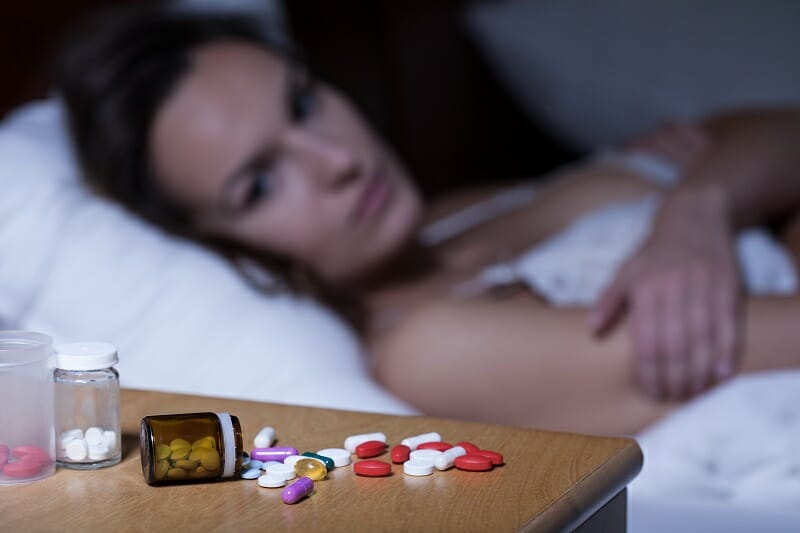Opioid Use Disorder Explained
Opioids – which include medicines such as codeine, morphine and oxycodone, as well as infamous illegal drugs such as heroin – are some of the most addictive substances in the world, with thousands of people dying each year as a result of their abuse. However, treatment is available for those able to ask for it.

What is Opioid Use Disorder?
Opioid use disorder is a medical condition in which the use of opioids causes a clinically significant impairment and/or distress to the individual concerned.
Technically, opioids are substances which act upon opioid receptors in the brain to produce morphine-like effects. The opioid class includes opiates, referring to drugs derived from opium, including morphine and heroin; and various synthetic and semisynthetic drugs which act in the same way but which do not necessarily contain any products actually derived from extracts from the opium poppy.
Opioids are primarily used medically for pain relief, and also for suppressing coughs, itchy throats and diarrhoea; they may be used in the treatment of opioid addiction and reversing opioid overdose, while some extremely strong opioids (including carfentanil) are used in veterinary medicine.
Both (prescription) opioids and highly illegal drugs such as heroin are also used recreationally for their potent euphoric effects, with individuals initially prescribed opioids for pain relief often turning to heroin (or illegally obtained prescription opioids) once tolerance and dependence have taken hold.
Although opioid addiction has been a recognised phenomenon for centuries, with opium abuse specifically, and subsequently morphine and heroin abuse, spreading across the world from the 19th century onwards, over the last couple of decades parts of the Western world (especially the United States and Canada) have experienced a so-called “opioid epidemic” or “opioid crisis”, with 49,000 people dying from opioid overdoses in 2017 in the USA alone; opioid overdose is now the leading killer of Americans under 50.
While opioid abuse has not yet reached such devastating levels in the UK, heroin already causes the majority of deaths due to drug abuse in this country, and fatalities involving fentanyl (a significant contributor to the North American opioid epidemic) rose 29% in 2017.
Call our admissions line 24 hours a day to get help.
Risk factors of opioid use disorder
People are most at risk of developing opioid use disorder who: take opioid-based prescription medicine regularly; have mental health problems; live in rural and/or impoverished areas; have had substance abuse problems previously; suffer from chronic pain; and/or have a family history of opioid abuse.
Causes of Opioid Use Disorder
Opioid use disorder results from the repeated consumption of opioids, over a short enough time that the individual’s body develops tolerance and dependence (the body becomes used to an elevated level of opioids, and cannot function normally in their absence). The individual will crave repeated consumption of opioids and may go to great lengths to obtain them, with their daily life dominated by the need to consume opioids. Upon cessation of use, the affected individual’s system reacts to the sudden absence of opioids, and withdrawal syndrome develops, with negative symptoms manifesting until the system readjusts.

Symptoms of Opioid Use Disorder
Sufferers will be overwhelmed by the need to consume opioids regularly, possibly to the exclusion of all other activities and at great cost to their relationships and life circumstances. Upon ceasing the consumption of opioids – voluntarily or otherwise – withdrawal symptoms may manifest after a few hours, including but not limited to nausea; shivering; muscle spasms and pain; diarrhoea; flulike symptoms; watery eyes; insomnia; agitation; restlessness; mood swings; aggression; and depression.
How Opioid Use Disorder Impacts Your Health
Opioid use disorder can have a catastrophic impact on an individual’s physical and mental health. The long-term use of opioids can lead to neurological damage, respiratory and cardiovascular problems, and in some cases organ failure; even in the short term opioid use can be fatal as a result of overdose. Various mental health disorders including anxiety and depression can result from addiction, while blood-borne diseases such as HIV/AIDS can be contracted as a result of sharing needles if using opioids intravenously. Addiction can also lead to malnutrition and a host of conditions related to poor hygiene and low-quality living conditions.
How to prevent opioid use disorder
The only certain way to prevent opioid use disorder is not to consume opioids at all. If prescribed opioids, take them only according to doctor’s advice regarding duration and frequency of use. Only ever take them via methods given on the prescription; never abuse non-prescription opioids.
Get help today
If you are struggling with opioid use disorder, it is not too late to get help and turn your life around; contact your GP and/or an addiction specialist today to discuss treatment options that may be appropriate for you.
Call our admissions line 24 hours a day to get help.
No matter where you live, there is a drug rehab center that can help you overcome your addiction. We'll help you find it.
Select a County



